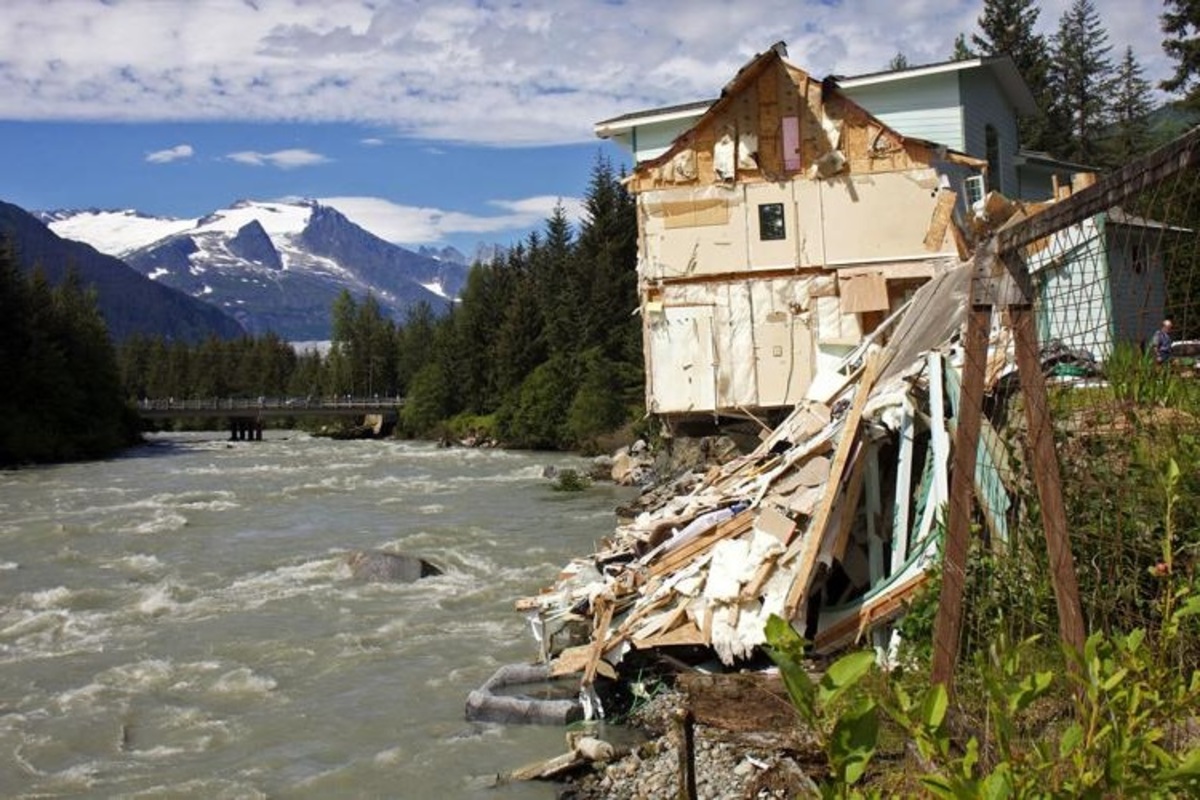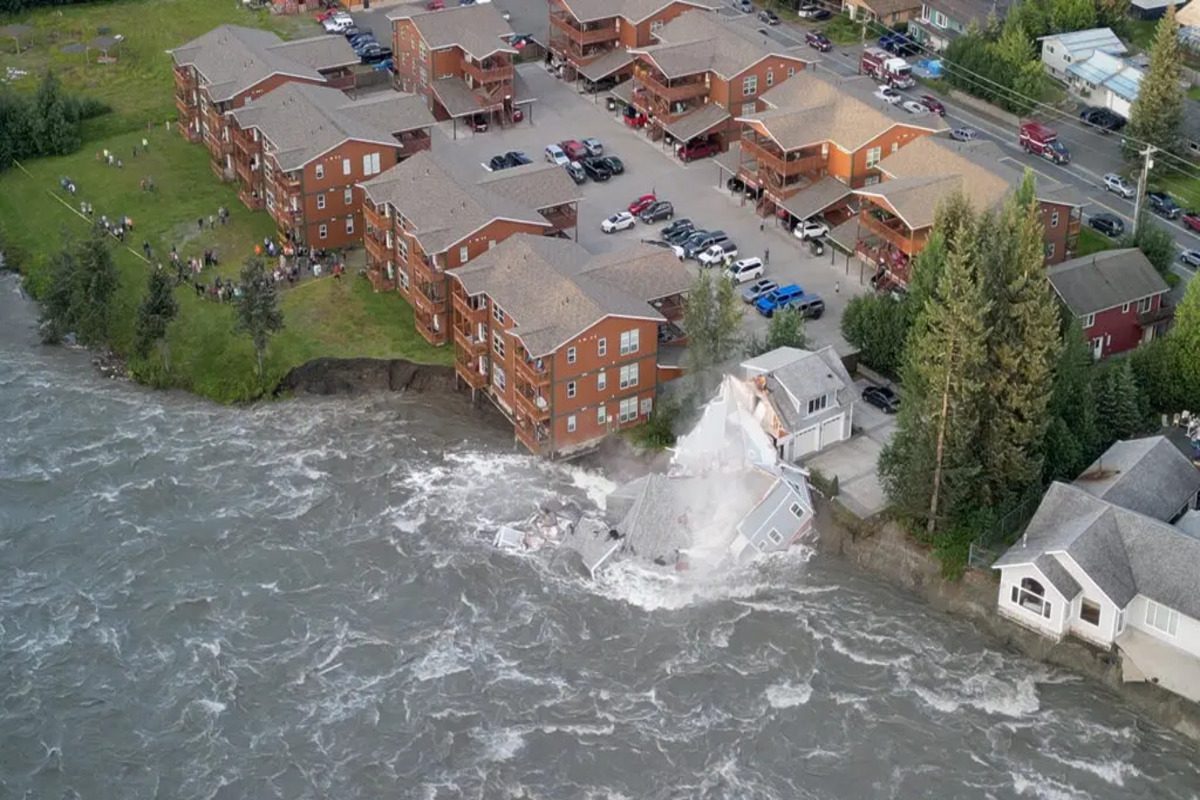Melting Mendenhall River Flooding: Juneau, Alaska, is tranquil yet has a terrifying problem. Glacier melting is raising the deadly Mendenhall River. The glacier undermined riverbanks and damaged two buildings over the weekend. This prompted local officials to declare an emergency.
Suicide Basin near the Mendenhall Glacier provided the water. 13 miles from the city. Suicide Basin flooded into the Mendenhall River on Saturday.
After the heavy rain, flooding is improving, but the National Weather Service advises caution. Riverbanks are dangerous and should be avoided.
The Weather Service advises caution despite the low risk of floods. Check for closed roads. They encourage you to avoid the river and falling banks.
The Juneau Engineering and Public Works Department reported that the water level peaked at 14.97 feet on Saturday night. The 2016 record of 11.99 feet was surpassed this time.
The heavy flood swept two homes into the river. Three wastewater pumping stations flooded and numerous gasoline drums were uprooted. Scary viral footage showed a structure slowly falling into the river due to soil erosion. After that, the authorities assessed the damage and demolished eight houses.


READ MORE: Hollywood celebrities Breakups: Kevin Costner, Ariana Grande, and Sofia Vergara Navigate Divorce
This massive storm with lots of water has not killed or injured anyone. This bizarre event has occurred several times. The Mendenhall Glacier has had summer “jokulhlaup” floods for over ten years. They occur where the glacier enters Mendenhall River. This happens because Suicide Basin water continues rising. This endangers riverside properties.
Babymaking is challenging. The growing water pushes the ice up. Water pushes out from under the ice until it breaks into Mendenhall Lake and the river.
Since the early 1900s, melting glaciers have plagued the planet, according to the WWF. Last year’s UN report was terrifying. Climate change will destroy some of the world’s most famous glaciers by 2050. The previous African glaciers are being destroyed. These glaciers are in Kilimanjaro and Mount Kenya.
Climate change and melting mountains affect Alaskans. According to the Department of Natural Resources, Alaska’s glaciers are among the world’s fastest-melting. The Arctic, which includes Alaska, is four times hotter than the global average, according to scientists.
Juneau’s glacial rush last weekend was alarming since it was so near to homes. The Mendenhall Glacier’s 12 kilometers in the city are cool. Cruise ship guests generally visit the crowded Port of Juneau after disembarking.
University of Alaska Southeast professor Eran Hood is brilliant. He teaches ecology. He will explain why this flood is different. Water is usually released slowly. The river couldn’t manage the strong, fast cascade this time.
Also Read: Springfield High-Stakes Trial: Tim Mapes Faces Perjury Charges in Madigan Case
Our Reader’s Queries
Why is the Mendenhall Glacier melting?
The Mendenhall Glacier has been shrinking since the 1700s, retreating over three miles and 800 feet between August 2021 and August 2022. The rate of retreat is influenced by different factors, but experts believe that human-caused global warming is contributing to the rapid loss in recent years.
Does melting glaciers cause flooding?
Global warming is causing glaciers to melt, creating massive, precarious lakes globally. Millions of people reside downstream, facing growing risks of catastrophic flash floods.
How much has Mendenhall Glacier retreated?
The Coast Range in Juneau, Alaska, U.S. is home to the Juneau Icefield Research Program, which has been keeping close tabs on the outlet glaciers of the Juneau Icefield since 1942, with a specific focus on the Mendenhall Glacier. Since 1929, the glacier has retreated approximately 1.75 miles (2.82 km), leading to the creation of Mendenhall Lake. Going back even further, the Mendenhall Glacier has retreated over 2.5 miles (4.0 km) since the year 1500.
When was Alaska flooding 2023?
Severe storms battered Alaska from May 12 to June 3, 2023, leading to widespread flooding. President Biden declared a major disaster on August 23, 2023. Residents in the Copper River Regional Educational Attendance Area are now eligible for federal disaster assistance.

